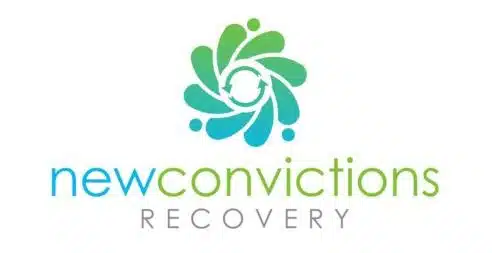Counseling For Alcohol Addiction
Since the inception of fermented grapes and wheat and their intoxicating effects on the human brain, alcohol has been a focal point of debate, legislation, and ethics within human society. Alcohol addiction, rooted in substance use and abuse, has become a pervasive challenge, plaguing many throughout history. In Ramsey, NJ, those grappling with this addiction can find many alcohol addiction counseling and treatment options.
These comprehensive services range from alcohol addiction counseling and outpatient alcohol addiction treatment options to dedicated substance abuse counseling. The state boasts various alcohol addiction recovery centers with tailored alcohol rehab programs. Individuals seeking early intervention can access alcohol addiction intervention programs, while those needing more extensive assistance can turn to specialized alcohol addiction therapists. Ramsey, NJ’s health centers also provide alcohol abuse therapy and comprehensive addiction recovery services.
To prevent relapse, many centers incorporate alcohol addiction relapse prevention strategies. Moreover, support isn’t just limited to therapy; there are alcohol addiction support services, alcohol addiction helplines, and alcohol addiction support groups available for individuals and their families. The mental toll of addiction is addressed through alcoholism counseling, ensuring a holistic approach to recovery.
Furthermore, the state is home to many resources, including drug and alcohol addiction recovery plans, ensuring every individual has a tailored path to recovery. With the overarching goal of fostering health and well-being, these centers support those seeking a life free from the shackles of addiction.
Breaking Free: The First Step in Alcohol Recovery
Eliminating the Drink
Step 1: The initial phase of alcohol recovery involves completely separating oneself from alcohol. If you find yourself consuming alcohol regularly, it may be necessary to undergo a medical assessment, as quitting alcohol abruptly can have serious and potentially life-threatening consequences for individuals who are dependent on it.
Finding the Underlying Cause: As individuals enter alcohol treatment, they realize that their drinking is just a symptom of a deeper issue. Our team of experts can help identify the root causes of these problems, ensuring a comprehensive recovery. New Convictions Recovery also offers tailored alcohol counseling, creating a personalized treatment plan designed to address your addiction. It’s important to remember that going through the recovery process with support often leads to higher success rates, so you don’t have to face this journey alone.
Restoring Your Body & Mind
The Physical Impact: Regular consumption of alcohol can have profound effects on both the body and mind. Alcoholic beverages are typically high in calories, leading many heavy drinkers to experience significant weight gain. Additionally, drinking habits often influence dietary choices, resulting in nutritional deficiencies that can lead to long-term health complications. Embracing a balanced diet is crucial, and our experts can guide you towards healthier eating habits, making the journey easier.
The Psychological Connection: Beyond physical health, it’s essential to address the mental and emotional ties to alcohol. Our experienced alcohol issue specialists possess the expertise to assist you in navigating and understanding the emotional bond with alcohol. They offer insights and support that can expedite your healing journey.
Preventing Relapses
Avoiding Setbacks: While experiencing a relapse is not a requirement for recovery, unfortunately, it is common for many individuals. A relapse can set back hard-won progress in the recovery journey. Some individuals may find themselves trapped in a cycle of addiction, escalating to more challenging states. Our skilled team is here to help you prevent relapses. By creating a personalized and holistic treatment plan, we focus on identifying early warning signs, triggers, problematic associations, and harmful thought patterns that often precede a relapse.
Taking the First Step
Total Abstinence: Initiating the alcohol recovery process requires complete abstinence from alcohol. For those who are accustomed to frequent consumption, a medical evaluation may be necessary before total withdrawal, as abruptly quitting can have severe, and sometimes fatal, implications for individuals dependent on alcohol.
Understanding the Underlying Issues: As individuals embark on alcohol treatment, it becomes evident that their drinking is a manifestation of deeper underlying issues. Our professionals specializing in alcohol problems are equipped with the tools and knowledge to assist you in exploring your emotional ties to alcohol. You will receive the advice and support essential for a swift and effective recovery.
Request An Appointment
New Convictions Recovery
Understanding Alcohol Addiction
- The nature of alcohol addiction: Delve into this dependency’s physiological and psychological aspects.
- Primary causes: Understand the environmental and genetic factors that contribute to the development of alcohol addiction.
Benefits of Seeking Counseling
- Personal growth: Recognize the potential for self-discovery and personal transformation through counseling.
- Prevention of relapse: Explore how consistent counseling can mitigate the chances of a relapse.
- Improved relationships: Learn how counseling can mend strained relationships and foster healthier connections.
- Mental health support: Understand how therapy can alleviate co-occurring mental health disorders tied to alcohol addiction.
Our Substance Use Counseling Center
- Specialized services: Discover the range of our services tailored for addiction recovery.
- Treatment approaches: Familiarize yourself with our evidence-based methodologies, ensuring effective recovery.
- Experienced staff: Get to know our team of professionals dedicated to your journey towards sobriety.
Holistic Approach to Recovery
- Body, mind, and spirit: Understand our belief in treating the whole individual, not just the addiction.
- Nutrition and fitness: Learn about the significance of physical health in the recovery process.
- Mental wellness strategies: Explore practices such as meditation, journaling, and cognitive behavioral therapy in our approach.
- Community and connection: Recognize the importance of building supportive networks and connections during recovery.
